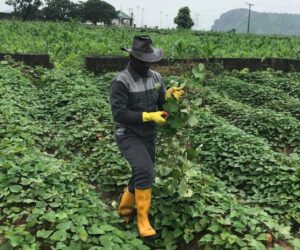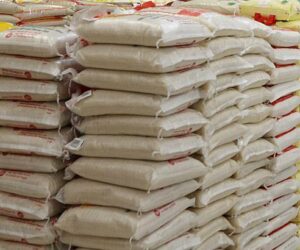1
“The future of Nigeria’s food security will not be built in boardrooms, but in communities working together.”
As food prices continue to rise across Nigeria, the question of how to feed a growing population has become more urgent than ever.
Despite its vast arable land and abundant resources, Nigeria still struggles to produce enough food to meet domestic needs.
According to the National Bureau of Statistics (NBS), food inflation stood at 22.7% in mid-2025, and millions of families spend more than half their income just to eat.

But, while government reforms and international support are crucial, real transformation must happen at the grassroots.
Across the country, cooperatives and community-driven initiatives are emerging as powerful tools to strengthen food systems, empower farmers, and restore Nigeria’s agricultural resilience.

Understanding Food Security
Food security, as defined by the Food and Agriculture Organisation (FAO), means that “all people, at all times, have physical, social, and economic access to sufficient, safe, and nutritious food.”
Achieving this is not just about producing more—it’s about ensuring fair access, affordability, and stability.
In Nigeria, food insecurity has deep roots: rural poverty, post-harvest losses (estimated at over 40% for perishable goods), limited access to credit, and insecurity that disrupts farming communities.
While national policies aim to fix these challenges, community-led structures— especially cooperatives—offer one of the most practical ways to improve food supply, distribution, and livelihoods.
The Power of Cooperatives
Cooperatives are voluntary associations where farmers and producers pool their resources, share knowledge, and work collectively toward common goals.
They provide smallholders—who make up over 80% of Nigeria’s farmers—with strength in numbers.
How Cooperatives Make A Difference
Access to Finance:
Lenders are more willing to finance groups than individuals.
Cooperatives help farmers obtain affordable loans, reducing dependence on exploitative moneylenders.
Shared Resources:
Members can purchase inputs like seeds, fertilizers, and equipment in bulk, cutting costs and improving quality.
Capacity Building:
Cooperatives partner with NGOs and agricultural agencies to train farmers on modern methods, climate-smart practices, and post-harvest management.
Market Access:
Through collective marketing, cooperatives eliminate middlemen, negotiate better prices, and guarantee more stable incomes.
In states like Kebbi, Ebonyi, and Oyo, cooperative rice and cassava clusters have significantly increased yields and reduced rural poverty.
These models prove that when farmers unite, productivity and profitability follow.
Community-Based Strategies That Work
Communities across Nigeria are also adopting creative, homegrown strategies to strengthen food systems and improve resilience.
Community Farming Projects:
Local councils and traditional rulers allocate idle land for group farming, allowing youth and women to cultivate collectively and share profits.
Storage and Processing Hubs:
Cooperatively owned silos, cold rooms, and processing centers help reduce post-harvest losses and create small-scale agro-industries.
Women and Youth Inclusion:
Women contribute over 60% of agricultural labour in Nigeria. Supporting their participation in cooperatives boosts household nutrition and community well-being.
Agri-Tech Collaboration:
Partnering with digital platforms for market access, weather forecasts, and soil monitoring helps smallholders make smarter farming decisions.
When these community models are properly coordinated, they can serve as local engines for national food sufficiency.
Challenges and Way Forward
Despite their potential, many cooperatives in Nigeria face challenges such as weak management, lack of trust, and inadequate access to finance.
Others operate informally without registration, excluding them from government grants or credit programs.
To address these challenges, experts recommend:Stronger leadership and transparency within cooperative societies.
•Regular training on bookkeeping, governance, and marketing.
•Government incentives, such as tax breaks and seed grants, for registered cooperatives.
•Integration with the Federal Government’s ongoing agricultural reforms—particularly in credit access, irrigation development, and mechanisation.
If properly supported, cooperatives can bridge the gap between policy and practice, turning government intentions into tangible food on Nigerian tables. Partnerships for Growth
Nigeria’s National Development Plan (2021–2025) and the new agricultural reform framework both recognise the vital role of communities in ensuring food sufficiency.
International partners like the European Union, IFAD, and the African Development Bank are already funding programs that work directly with local cooperatives to build sustainable value chains.
Public-private partnerships can further help cooperatives access modern equipment, storage facilities, and training, while also connecting farmers to regional and global markets.
Feeding the Nation from the Ground Up
Nigeria’s dream of food security will not be achieved by government efforts alone. It will be driven by communities that organise, cooperate, and innovate. When farmers work together—sharing land, knowledge, and resources—they build more than just crops; they build resilience, self-sufficiency, and hope.
As Dr. Agnes Kalibata, former UN Special Envoy for Food Systems, once said: “Food systems thrive where people work together. Cooperation turns scarcity into opportunity and transforms farming from survival into success.”
Indeed, for Nigeria to overcome hunger and dependence on food imports, the solution must begin in its communities — one cooperative, one harvest, and one shared effort at a time.








